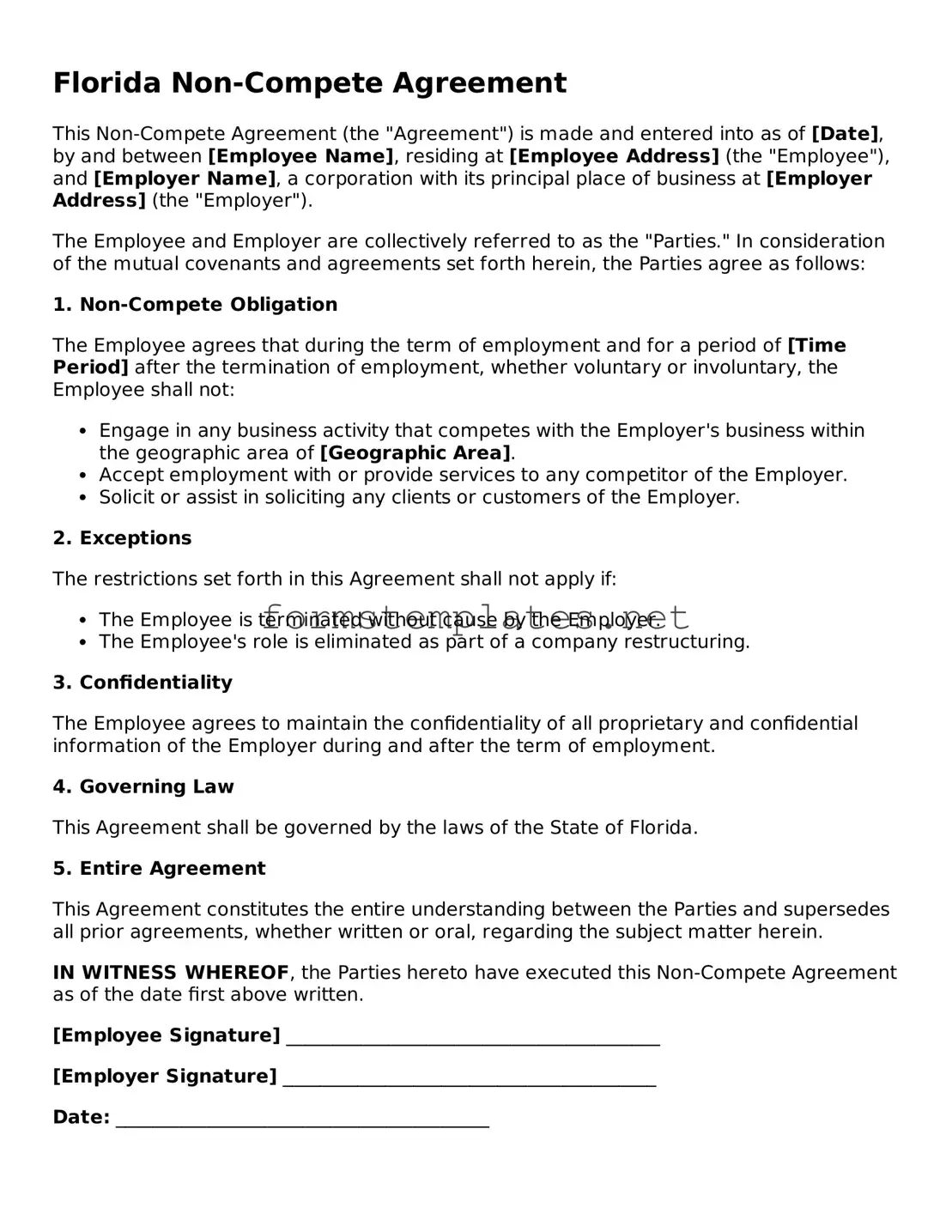Attorney-Approved Florida Non-compete Agreement Template
A Florida Non-compete Agreement is a legal document that restricts an individual from engaging in business activities that compete with their employer after leaving the company. This form aims to protect the employer's interests by preventing the employee from sharing sensitive information or taking clients to a competing business. Understanding the implications of this agreement is crucial for both employers and employees to ensure fair practices in the workplace.
Open Editor Now

Attorney-Approved Florida Non-compete Agreement Template
Open Editor Now

Open Editor Now
or
⇓ PDF Form
Your form still needs attention
Finalize Non-compete Agreement online — simple edits, saving, and download.